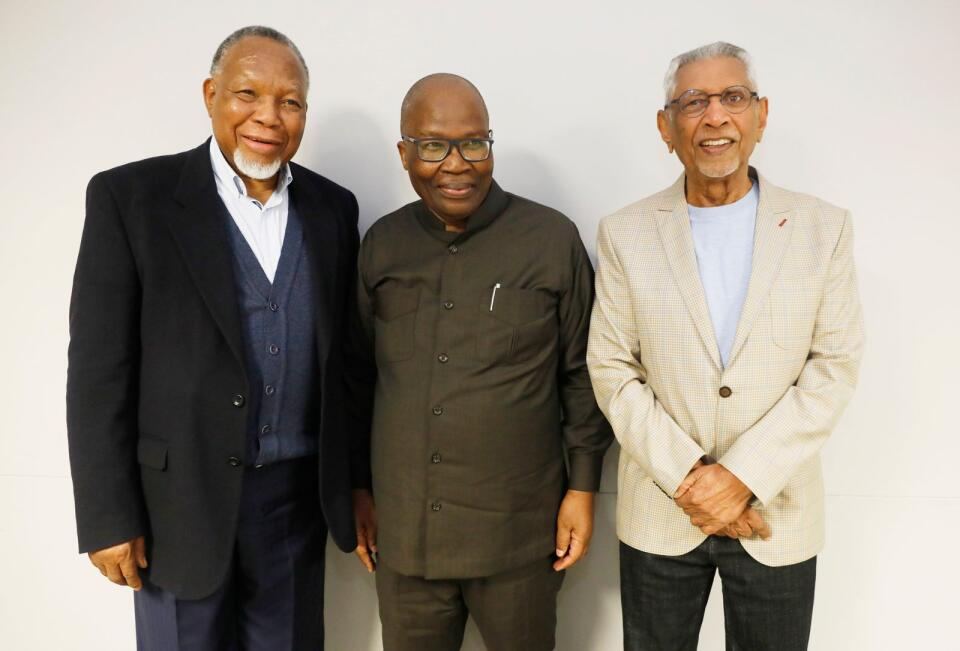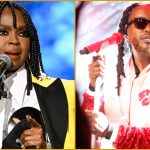The Natal Indian Congress, which celebrated its 130th anniversary last week, is irrelevant and serves no purpose in the 21st century. The primary reason for the birth of this exclusive affairs body was to initially champion the cause of South Africans of Indian descent and later fight for a democratic South Africa.
That job was done 30 years ago, proving that its leaders are part and parcel of what Archbishop Desmond Tutu once called the “Rainbow Nation”. Yet the Natal Indian Congress persists with its Apartheid moniker, just as the irrelevant South African Communist Party, which has never gone to the polls to prove its legitimacy.
While the SACP remains cushioned by the disintegrating ANC because of a weakening tripartite alliance that lost its glue at the last polls, the NIC, like a modern-day Rip van Winkel, has suddenly awoken to find itself in a democracy in which it seems confused about its place. Does it represent the Indian community?
South Africans of Indian origin, or at least those famous names who fought for the country’s liberation, were not like Mahatma Gandhi, the founder of the NIC. This Indian national stood up to the discrimination by the British against his countrymen who arrived as indentured labourers. He formed the NIC in 1894.
The NIC evolved from Gandhi’s Indian resistance to play a crucial part in the anti-Apartheid struggle. In 1947, under Dr. Monty Naicker, the NIC, along with Yusuf Dadoo of the Transvaal Indian Congress and AB Xuma of the ANC, signed the so-called ‘Doctors’ Pact’ to cooperate against racial oppression. For the times, it was brave and relevant.
In the 1950s, Indian leaders under the umbrella of the Indian body, the South African Indian Congress (SAIC), founded in 1923, joined the ANC as part of the Congress Alliance.
The NIC protested against the South African Indian Council and the House of Delegates, which participated in the 1984 tricameral parliament elections. Several NIC leaders were arrested and harassed because of their involvement.
Leaders of Indian heritage played a pivotal role in forming the United Democratic Front in 1983, which mobilized people and organizations nationally against Apartheid, demanding the creation of a united, non-racial, non-sexist, and democratic South Africa.
Ironically, the end of Apartheid in 1994 did not result in the end of the Apartheid racial tags that the UDF demanded. Former President Nelson Mandela’s euphoria and the fake unity symbolised then by the Springboks did little for race relations. In 1995, the opportunity to embrace a South African identity, regardless of race, remains a Madiba missed opportunity.
One must not forget that Indian President Pandit Jawaharlal Nehru significantly contributed during the Defiance Campaign in 1952. He led the initiative for a joint request by 13 Asian-African States to the United Nations General Assembly to oppose Apartheid and called for international action.
India is still perceived as a motherland to many South African Indians whose forebears arrived as indentured labourers on 16 November 1860. Religious traditions and social customs passed down through generations remain strong to this day. Long may those traditions continue. But it’s time to draw a line in the sand regarding identity. The Constitution protects religious freedoms and beliefs. Can one not practice these yet, calling oneself South Africa?
Therefore, in keeping the NIC alive, if they continue to exist, it is almost a statement that we, the Indian South Africans, have not evolved politically and consciously to support political parties that have political views as opposed to racial and cultural interests. We should move away and think of a global community, national comm, the NIC through its existence, perpetuates the very racism it fought against.
During the Defiance Campaign, the ANC became home to people regardless of colour. One of the famous people who put his colours to the organisation then was Justice Albi Sachs. I’ve never heard him talk with a forked tongue about being white and South African. He always embraces his South Africanness. Why, then, did the ANC retain the very tool of the Apartheid leaders, which led to our separate development as citizens?
History will remember the contribution of the NIC leadership. But there’s also a dark stain. In 1990, a report on a cabal within the mass democratic movement emerged, alleging that leaders were manipulating processes against democratic outcomes. Leaders were also sidelined. The report was distributed for debate. Prominent NIC leaders Pravin Gordan, Zac Yacoob, Alf Carrim, Yunus Mohammed, Farouk Meer, Jerry Coovadia, and Billy Nair were listed as cabal members in the then-Natal.
The report listed several factors that led to the emergence of the Cabal, chiefly a phenomenon where people took it upon themselves to strategise for the NIC and UDF at regional and national levels, imposing their will on others. Those who disagreed with such strategies were dismissed as nationalists, mavericks, old guards, etc. Over time, this led to the ousting of senior activists in the struggle from their leadership positions, which members or supporters of the cabal subsequently took up. The report found that senior NIC activists like MJ Naidoo, RB Chaudhary, Ramlall Ramesar, and Rabbi Bugwandeen were subjected to the cabal-manipulating style. Black comrades in Natal also suffered at the hands of the cabal. At one ANC meeting in Paris, the late Pius Langa, who became Chief Justice, was barred from a closed MDM/ANC meeting because cabal members alleged he was not part of the movement.
History must be fair, showing the warts and all. Of course, this would not be something they would talk about at a celebration. So, 130 years later, one must ask whether the NIC represents the people’s will or is merely imposing its will on people.
Historians will remind us that the NIC produced a long line of leaders the likes of George and Vera Poonen, H A Naidoo, MD Naidoo, MP Naicker, Dawood Seedat, RD Naidoo, George Singh, AKM Dockrat, RK Gounden, IC Meer, Dr Kesaveloo Goonam, JN Singh, NG Moodley, Billy Peters, Cassim Amra, PM Harry, Kay Moonsamy, RR Pillay, SV Reddy, Mannie Pillay, Billy Nair and Dr Monty Naicker. While the NIC fought to improve the lot of Indians, there was a schism with African counterparts.
At the weekend, former ANC NEC member, political prisoner, and anti-apartheid activist Mac Maharaj, celebrating the NIC’s anniversary, spoke of the Constitution’s importance and the Freedom Charter.
The former Minister of Transport said one must ask to what extent and why South Africa has become more racially polarised after the short euphoria of the post-1994 period.
“The lessons of the NIC’s contribution are there for all to see: the Indian community is not the problem. They are part of the solution.”
Since it did not participate in elections but was more active in putting up “Don’t Vote” and “Boycott” posters before 1994, what is the NIC’s purpose in our democracy?
Looking at the crowd that gathered at Sastri College for the 130th-anniversary bash, there were many of the same old faces from yesteryear’s NIC meetings. It could have well been a gathering of folk at a SASSA office. Where is the young blood that the NIC hopes will take the organisation into the future? Using Ela Gandhi to sustain the NIC’s Gandhian legacy will not get the NIC any new supporters. Sadly, the Gandhi Settlement at Phoenix is a far cry from the kind of monument it could be to the Mahatma. Few locals visit the place, which is showcased – even in its sorry state – to get funding from India through diplomatic channels.
It is true that despite using racist platforms from which to improve a lot of Indians, the SAIC and House of Delegates, whose members were derided by detractors as “collaborators, traitors and lackeys”, did more in 20 years of existence than the NIC did in 130 years. Houses, schools, and recreational facilities were developed for Indians. Since democracy, has the government put a single roof above an Indian family?
Working within the system, the SAIC and HOD opened many doors that had hitherto been closed to Indians. Discussions with Sasol, Eskom, Iscor and Telkom provided jobs for apprentices and technicians who had completed their studies at the then ML Sultan Technikon. Soon after that, hundreds of young Indians landed well-paying jobs in Sasolburg and Secunda as coded welders, boilermakers, fitters and turners, plumbers and electricians. Much to the chagrin of Indian South Africans, when the ANC needed help in obtaining a majority in Kwazulu-Natal in 2004, it turned to Amichand Rajbansi, the Chatsworth Minority Front leader, labelling him after he died in 2011 as a leader committed to nation-building and bringing unity, particularly here in KwaZulu-Natal.
The NIC should follow Raj’s example and stop sitting on the sidelines, moaning, or preaching on WhatsApp groups. It should become visible in the communities it claims to represent and hold the government accountable, as Rajbansi did with a smaller following. Ironically, while nobody seemed to listen, the Minority Front of 2024 threw its weight behind the ANC. People and politics have moved on, but history remains an actual record of the struggle.
One does not need the NIC to celebrate the past when they should be working in the present towards ensuring a better life for all, alleviating poverty, and achieving the equality underpinning its formation. After all, in the spirit of the UDF, how can unity be achieved if a nation is defined by its apartheid racial tags when there should be a shared identity?
In a country struggling with an ethical leadership deficit, those in charge of the modern-day Natal Indian Congress should show the ANC how to build society, not tear it apart. They can do this by embracing the one South Africa they fought for by dropping the racially polarising “Indian” racial label and provincially segregationist “Natal” from its name that is out of kilter in shaping the democracy they fought for.
One hopes it may be discussed when they gather to celebrate the next milestone. Mahatma Gandhi’s birthday on 2 October, a United Nations International Day of Non-Violence, should provide an opportunity for reflection for the NIC. Its leaders should be contributing nationally and globally to shape a better world. Perhaps it’s time for honest introspection about its relevance in democratic South Africa. The NIC should call it a day.
Edwin Naidu is a communications specialist and journalist driving social-enterprise start-up Higher Education Media.





